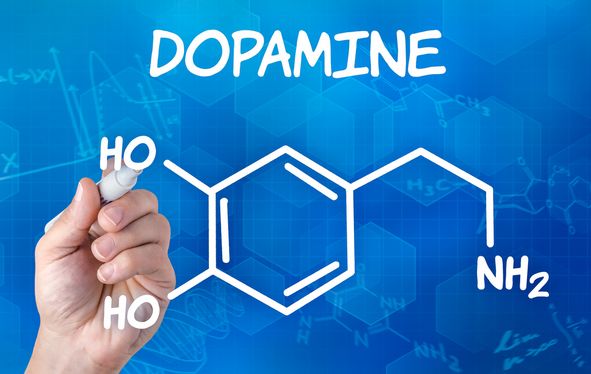First, let’s move on using what dopamine is and why it is so important. Dopamine comes from a specific protein known as Tyrosine. Dopamine is certainly a vital neurotransmitter that features a host of role’s it plays in the body, most of which helps to support thinking processes. Memory, mental focus, concentration, emotional states, movement and sleeping are simply a handful of those vital roles. It features a essential role in supporting both our mental and physical health.

Dopamine arises from a place in the brain referred to as substantia nigra. The substantia nigra is often a number of neurons that leave dopamine for your nerves inside the body (CNS). Exactly how the brain works can be a highly complicated process of signals and nerve transmissions. Neurons in the brain actually release chemical messengers (known as neurotransmitters) through their synapses (nerve endings) that go to another synapses and convey specific signals. Neurotransmitter’s are continually hitting theaters in to the synapses and reabsorbed. This is why your brain can communicate so quickly and efficiently.
Dopamine’s process within the mental abilities are highly complex, but I’ll try and break it down to an amount where running out of energy realize it. When low dopamine is released, it a location to visit. Where it travels are classified as receptors. The dopamine molecule fits together as being a locksmith using the receptor, creating an action for that neuron. The message that the dopamine molecule was carrying will then be continued with the neuron who’s reaches also it continues until it spreads through the entire nervous system. In fact with the receptors are filled with the dopamine molecules, our bodies has to reuse the dopamine that wasn’t utilized. This is what’s called reuptake in medical terms. Re-uptake can be a procedure that permits the dopamine levels (and other neurotransmitter levels) to keep steady. Additionally there is a process called the negative feedback loop that stops too much of a neurotransmitter from being produced. The challenge with most people is the fact that their dopamine receptors become inactive or destroyed, and also the precursors to doopamine.
Having the proper degrees of dopamine in the brain and neurological system will assure the subsequent:
Reduced cravings
Reduced addictions
Advanced level of motivation
Reduced amounts of depression.
Reduced anxiety
Higher level of clarity while focusing
Satisfaction in personal life
Healthy sex life
Low dopamine levels contained in several different ways in many different people. The most common negative effects experience are depression and laziness. Men and women lack the energy and motivation to do daily activities which they didn’t have problems performing before. Making decisions and emphasizing activities also becomes a problem when dopamine levels are inadequate. could possibly have trouble focusing or selection. Becoming abnormally cold along with the being unable to shed weight are one of the other common unwanted effects of low dopamine levels.
Low dopamine levels can be achieved by a number of reasons. Many of the known causes to help with low dopamine levles are:
High intake of caffeinated foods and beverages
Alcohol
Unhealthy fats. (fastfood, low quality meat, etc.)
Refined foods such as white sugar, white flour and white breads.
High levels of stress within the workplace and at home.
Insufficient sleep.
Poor eating styles
Prescriptions (speak to your doctor for the report on which ones)
Illegal drug use (marijuana, cocaine, etc.)
I’ll enter into detail a bit more on drugs and exactly how they influence dopamine with a physiological level. There are numerous drugs which may have both negative and positive effects on dopamine. There’s also specific enzymes which help in the stop working of dopamine. These enzymes these are known as monamine oxidase’s (mostly termed as MAO.) The molecules that bind to dopamine receptors and stimulate dopamine are classified as agonists. About the opposite side in the coin, molecules that bind for the receptors and don’t stimulate dopamine release are called antagonists. In a nutshell, agonists elevate levels and antagonists prevent dopamine from hitting theaters.
As stated before, illicit drugs negatively impact dopamine levels inside the brain and nerves. Some drugs, like amphetamine (also known as speed) and cocaine acquire desired physical effect by affecting the release of neurotransmitters inside the brain. Most people think they decrease the amounts of dopamine, whilst in fact, they improve the amounts of dopamine. Physiologically, they prevent dopamine re-uptake after it has been released by destroying receptors, thus preventing the negative feedback loop. Long-term drug use produces a concept called sensitization, that’s where the body continues to produce more dopamine plus more receptors due to the fact that they are becoming destroyed and the negative feedback loop becomes distorted. Long story short, avoid illicit drugs to make sure adequate neurotransmitter balances in the brain.
Now you’re probably wondering how you can increase your dopamine levels, right? Well, when you have low levels of dopamine, it is possible to consume foods containing tyrosine to correct the imbalance. Almonds, sesame seeds, dairy products, bananas, and avocados are all good dietary reasons for tyrosine.
Nutritional dopamine supplements generally is one of the top ways to improve your dopamine level and relieve most the signs and symptoms as listed above. You’ll find quite a few products for sale to date that will assist with dopamine levels. The dopamine supplement that people recommend most to patient’s and customers is Balance-D. It is a tried and tested supplement to promote dopamine levels. The side connection between NeuroScience’s Balance-D are incredibly few in number with practically no unwanted effects in compared to many drugs.
Dr. Jacob Canfield can be a chiropractor containing seen over 10,000 patient’s and possesses special certifications in nutrition and professional grade supplements. She has practiced in Atlanta, Georgia and Detroit, Michigan and holds degrees in Biomedical Science and Biology.
For details about dopamine deficiency see this useful site: look at this

